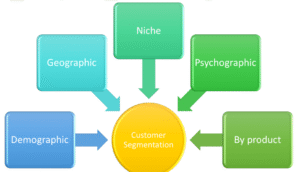How Outbound Marketing Shapes Your Business Reputation

Your business reputation doesn’t exist in a vacuum. Every cold call, email campaign, and direct mail piece you send contributes to how prospects and customers perceive your brand. While outbound marketing gets criticized for being pushy or outdated, the truth is more nuanced: when done right, it can enhance your reputation and build trust. When done poorly, it can damage relationships before they even begin.
Understanding the connection between outbound marketing and business reputation is crucial for any company looking to grow sustainably. This post explores how your outbound efforts directly impact your brand perception and provides actionable strategies to ensure your marketing builds rather than breaks your reputation.
What Makes Outbound Marketing Different
Outbound marketing involves reaching out to prospects who haven’t necessarily expressed interest in your product or service. Unlike inbound marketing, where customers come to you, outbound marketing requires you to initiate contact through channels like cold calling, email campaigns, direct mail, or paid advertising.
This fundamental difference creates unique challenges for reputation management. When someone visits your website or downloads your content, they’ve already shown some level of interest. But when you reach out cold, you’re interrupting their day and asking for their attention without permission.
The stakes are higher with outbound marketing because first impressions matter tremendously. A single poorly crafted cold email or aggressive sales call can permanently damage how a prospect views your company. Conversely, a thoughtful, value-driven outbound campaign can position your brand as helpful and professional.
The Reputation Risks of Outbound Marketing

Several factors make outbound marketing particularly vulnerable to reputation damage:
Volume Over Quality Approaches
Many companies prioritize quantity over quality in their outbound efforts. They send thousands of generic emails or make hundreds of cold calls with little personalization. This spray-and-pray approach often backfires, creating negative associations with your brand.
Recipients of generic outbound messages often perceive them as spam, regardless of their actual relevance. When prospects feel like they’re just another number on a list, they’re more likely to view your company negatively and share those experiences with others.
Lack of Timing and Context
Outbound marketing often ignores the prospect’s current situation and timing. A cold call during a busy period or an email about a solution they don’t need can feel intrusive rather than helpful. This misalignment between your message and their reality can damage your reputation as a company that “gets it.”
Aggressive Sales Tactics
Some outbound campaigns rely on high-pressure tactics or misleading subject lines to generate responses. While these approaches might increase short-term metrics, they often create long-term reputation problems. Recipients who feel tricked or pressured are likely to share negative experiences and warn others about your company.
Poor Follow-up Practices
Inconsistent or overly aggressive follow-up sequences can also harm your reputation. Prospects who receive multiple calls or emails after expressing disinterest may view your company as disrespectful or desperate.
How Outbound Marketing Builds a Positive Reputation

Despite these risks, outbound marketing can significantly enhance your business reputation when executed thoughtfully:
Demonstrating Industry Expertise
Well-researched outbound campaigns can position your company as knowledgeable and insightful. When you reference industry trends, company-specific challenges, or relevant case studies in your outreach, you demonstrate expertise that enhances your reputation.
For example, a cold email that references a prospect’s recent company news or addresses a challenge specific to their industry shows you’ve done your homework. This level of preparation signals professionalism and expertise.
Providing Unexpected Value
Outbound campaigns that lead with value rather than sales pitches can pleasantly surprise recipients. Sharing relevant industry insights, offering free resources, or providing helpful advice without immediately asking for something in return can create positive associations with your brand.
Showcasing Company Culture
Your outbound messaging style reflects your company culture and values. Professional, respectful, and helpful outreach demonstrates that these qualities extend throughout your organization. This consistency between your marketing and your brand values builds trust and credibility.
Creating Positive First Impressions
When done right, outbound marketing can create memorable, positive first impressions. A thoughtful cold call or personalized email can make prospects think, “This company seems different” or “They really understand our business.”
Strategies for Reputation-Conscious Outbound Marketing
Research and Personalization
Invest time in researching prospects before reaching out. Understand their company, industry challenges, and recent developments. Use this information to craft personalized messages that demonstrate genuine interest in their business.
Personalization goes beyond using someone’s name. Reference specific details about their company, mention mutual connections, or acknowledge recent achievements. This level of customization shows respect for their time and attention.
Lead with Value
Structure your outbound campaigns to provide value before asking for anything in return. Share relevant industry insights, offer free resources, or provide helpful advice. This approach builds goodwill and positions your company as a trusted advisor rather than just another vendor.
Respect Communication Preferences
Make it easy for prospects to indicate their communication preferences and respect their choices. Include clear unsubscribe links in emails, honor do-not-call requests, and provide multiple ways for prospects to opt out of future communications.
Train Your Team
Ensure everyone involved in outbound marketing understands how their actions impact the company’s reputation. Provide training on professional communication, active listening, and respectful follow-up practices. Role-play difficult scenarios to help team members handle objections gracefully.
Monitor and Respond to Feedback
Actively monitor mentions of your company online and respond professionally to any negative feedback about your outbound marketing efforts. Use criticism as an opportunity to demonstrate your commitment to improvement and customer service.
Measuring Reputation Impact
Track metrics that reflect the reputation impact of your outbound marketing efforts:
Brand Sentiment Analysis
Monitor social media mentions, review sites, and industry forums for sentiment about your outbound marketing. Look for patterns in feedback that indicate reputation issues.
Response Quality Metrics
Track not just response rates but response quality. Positive responses, meeting acceptance rates, and referrals from outbound campaigns indicate a healthy reputation impact.
Long-term Relationship Building
Measure how many outbound prospects eventually become customers, even if not immediately. This metric indicates whether your outbound efforts are building positive long-term relationships.
Unsubscribe and Complaint Rates
Monitor unsubscribe rates and complaints about your outbound campaigns. High rates in these areas often signal reputation problems that need addressing.
Building a Reputation-First Outbound Strategy
Start by defining your company’s reputation goals alongside your outbound marketing objectives. Consider how you want prospects to perceive your brand after every interaction, not just whether they respond to your campaign.
Develop messaging frameworks that consistently reflect your brand values and position your company positively. Create templates and scripts that team members can personalize while maintaining your desired brand voice.
Implement feedback loops that help you understand how prospects perceive your outbound efforts. Regular surveys, informal feedback collection, and social listening can provide valuable insights into reputation impact.
Your Outbound Marketing Legacy
Every outbound marketing campaign you run contributes to your company’s reputation legacy. The question isn’t whether outbound marketing affects your reputation—it’s whether that effect is positive or negative.
Companies that approach outbound marketing with a reputation-first mindset often find that their campaigns become more effective over time. They build trust, generate higher-quality leads, and create sustainable growth engines that enhance rather than damage their brand.
The key is remembering that behind every email address and phone number is a real person with their own challenges, preferences, and opinions. When you treat prospects with respect and provide genuine value, your outbound marketing becomes a powerful tool for building lasting business relationships and a strong reputation.
You can learn more: What is Inbound vs Outbound Product Marketing?





